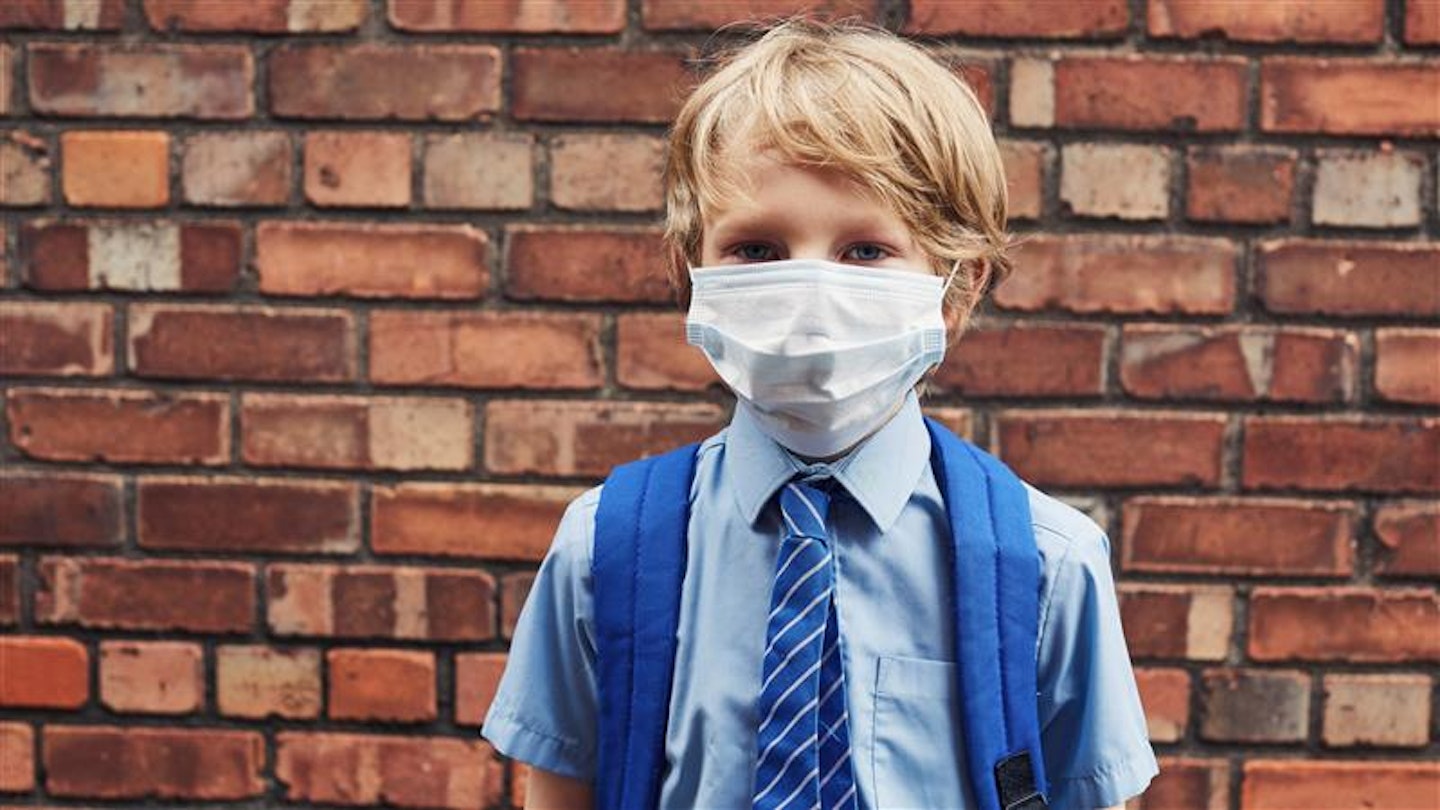My heart sank this week when I read the headlines predicting that the new omicron variant of coronavirus could cause ‘chaos’ in schools and that new self-isolation rules were coming in. At the last count, 14 people in the UK are thought to have caught variant, which it’s believed originated in South Africa.
The government confirmed on Sunday that school children who come into contact with someone who tests positive for the so-called mutant strain will have to self-isolate for 10 days even though ministers warned this could cause a repeat of last summer where thousands of healthy children were kept off school.
MP Steve Baker, deputy chairman of the Covid Recovery Group, said the measures “will cause chaos including collateral harms like damage to children’s education,” adding: “The Government needs to explain when all of this will be brought to an end.”
Although Education Secretary Nadhim Zahawi recently told ITV’s This Morning that closing schools was the “last possible option” and that there would not be a return to school ‘bubbles,’ it is clear that the latest regulations are going to have a significant impact on our kids.
A recent study, funded by the Nuffield Foundation and published in October 2021, showed a significant rise in emotional and behavioural difficulties among primary school children following the repeated 2020 and 2021 school closures.
The study, by researchers at the Universities of Essex, Surrey and Birmingham, highlighted the impact school closures had on children’s mental health, comparing mostly home-schooled children to those in reception, year 1 and year 6 who were invited to return before the summer holidays. It showed a significant ‘wellbeing gap’ between those who returned to school sooner and that the longer children were off school, the more likely they were to experience behavioural and emotional difficulties.
At which point I say, that comes as no surprise. I know first-hand the disruption that repeated lockdowns, school closures and home learning caused for my three children.
My eldest, now 12, missed out on the last crucial year of primary school, including his last residential trip, his final nativity play, and his leaving do, and with it, the chance to say goodbye to his friends before they all took the huge leap to secondary school. These small rituals form an essential part of the last year of primary school and are a rite of passage children have enjoyed for decades. They give them a sense of belonging and purpose before they move onto the next chapter of their lives. As a result, my son went from being a sporty, gregarious and fun-loving little boy to an angry, reclusive child who wanted to spend all his waking hours on PlayStation.
My nine-year-old, who is autistic and has special educational needs, was already behind his peers academically before Covid hit. The last 21 months have set him back even further and he has really struggled with the on/off nature of school bubbles, staff absences, changing restrictions and rules. It has had a detrimental effect on his self-esteem and confidence and on us as a family.
Lastly, my seven-year-old daughter hasn't had an uninterrupted year of education since reception, but in comparison to her brothers she hasn’t been quite as adversely impacted. She is very aware of everything that has been going on though, and I will never forget her refusing to get out of the car when we went to see my 70-something-year-old Dad in case she accidentally gave him Covid. The fact that young children, like my daughter, feel responsible for carrying the weight of this dreadful disease makes my heart feel heavy. They shouldn’t have their childhoods compromised in this way.
Sadly, several cases of the omicron variant have already been identified in two schools with one primary in Essex reintroducing remote learning and targeted testing for pupils.
Julie McCulloch from the Association of School and College Leaders (ASCL) said many schools may end up having to revert to remote learning once more. ‘Many schools are experiencing high levels of staff absence as a result of Covid, and this situation is likely to worsen because of the Omicron variant,’ the union’s director of policy told The Independent. And Dr Jenny Harries, the current head of NHS Test and Trace, recently told BBC Radio 4's Today programme that people should do their bit to reduce the spread of the new omicron variant by reducing the number of social contacts they have.
Meanwhile, parents have called for children to be exempt from the new self-isolation rules.
Molly Kingsley, co-founder of parent campaign group UsForThem, said: ‘We learnt from summer that forcing healthy children to isolate was an unmitigated disaster and it is unforgivable to do that again. If they don’t exempt children it will cause chaos in the classrooms. Asking healthy children to quarantine is not a harm-free measure, it is harmful to children who are not at serious risk from the illness. At this point in the pandemic it is shameful for the Government not to have an exemption for children.’
I have to say, I fully concur. We need to keep things as stable as possible for our children. They will be the ones running the country in the years to come and deciding our futures, after all. Let’s hope they make a better job of it than this government.
